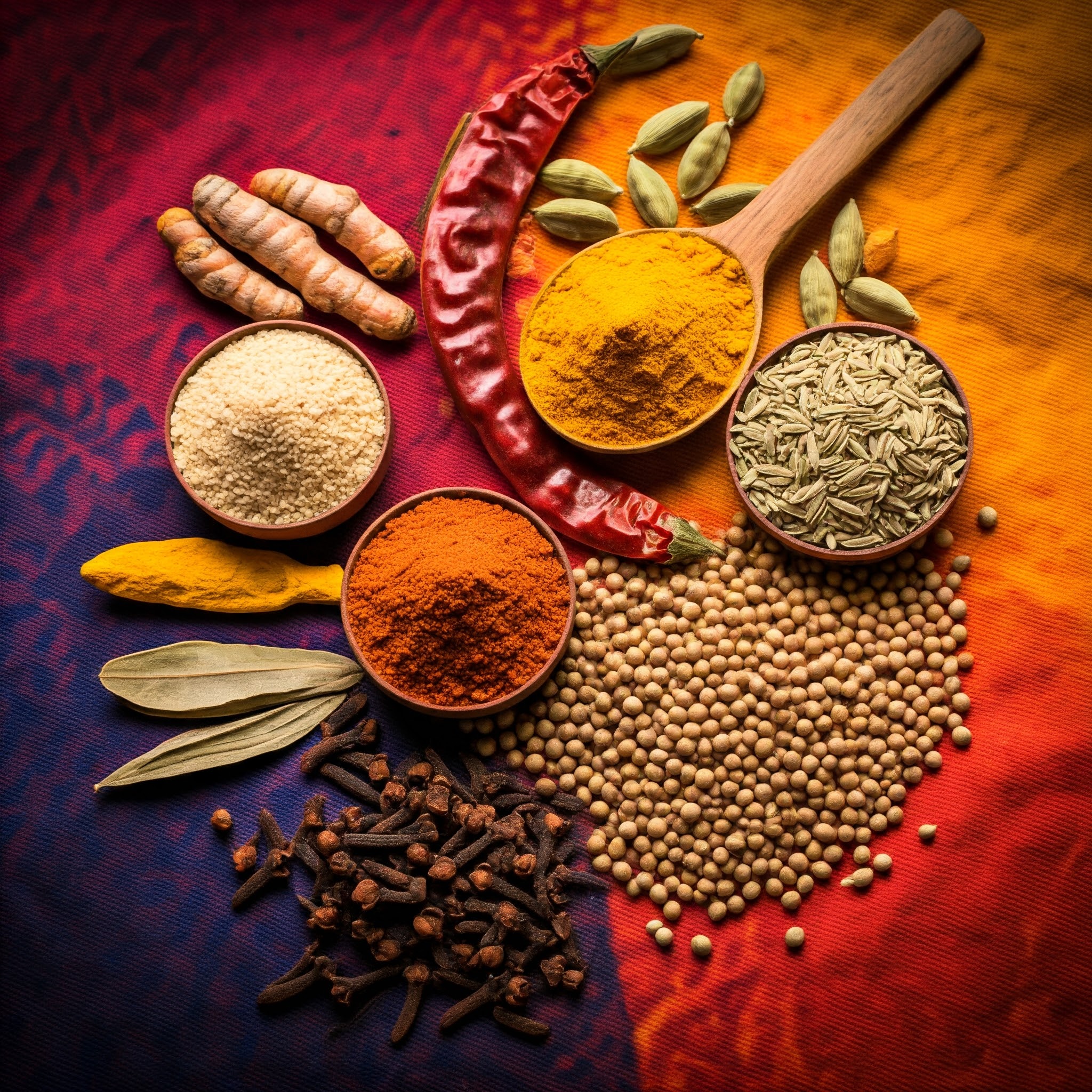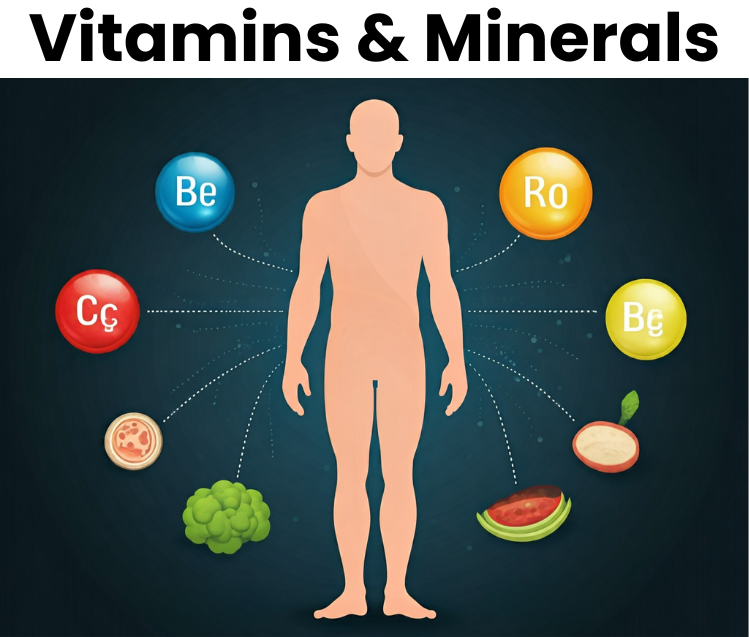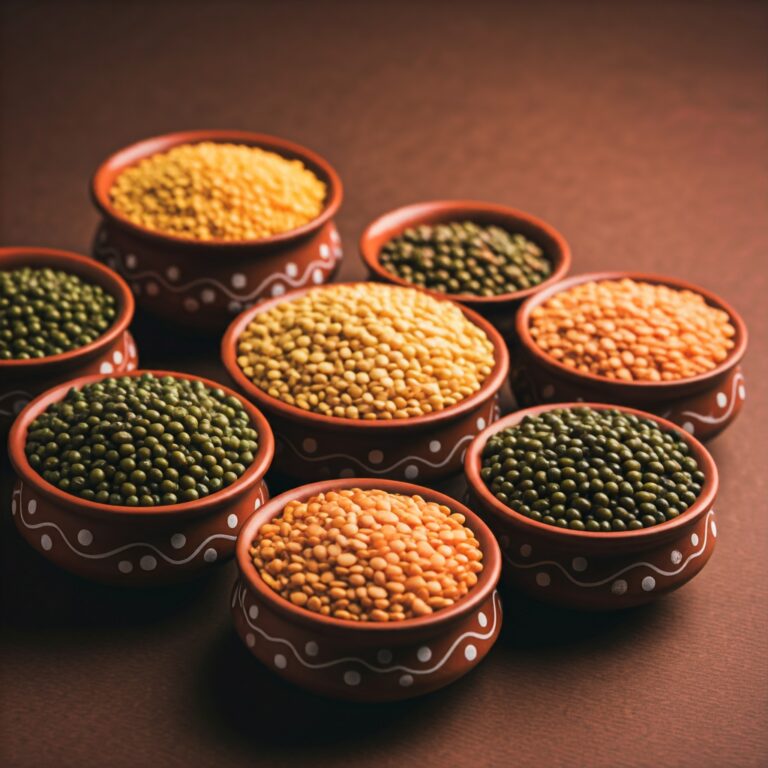The Spice of Life: A deep dive into Indian spices
India, a land steeped in tradition and culture, is renowned for its vibrant and aromatic cuisine. One of the key elements that sets Indian food apart is the judicious use of spices. These aromatic and flavorful ingredients not only enhance the taste of dishes but also provide a plethora of health benefits. In this blog post, we will embark on a journey to explore the diverse world of Indian spices, delving into their history, nutritional value, and potential health benefits. The ancient Ayurvedic system of medicine, which originated in India, has long recognized the medicinal properties of spices and has incorporated them into various treatments and remedies.
A Brief History of Indian Spices
The history of Indian spices is as rich and diverse as the country itself. For centuries, India has been a major exporter of spices to the world, and its spices have played a significant role in shaping global trade and culture.
Nutritional Value of Indian Spices
Indian spices are packed with essential nutrients, including vitamins, minerals, antioxidants, and dietary fiber. Some of the key nutrients found in Indian spices include:
- Vitamins: Vitamins A, B, C, and K
- Minerals: Iron, calcium, magnesium, potassium, and zinc
- Antioxidants: Curcumin, quercetin, and capsaicin
- Dietary fiber: Fiber is essential for digestion, weight management, and overall gut health.
Health Benefits of Indian Spices
In addition to their nutritional value, Indian spices offer a wide range of potential health benefits. Some of the key health benefits associated with Indian spices include:
- Anti-inflammatory properties: Many Indian spices, such as turmeric, ginger, and cumin, have powerful anti-inflammatory properties that can help reduce inflammation throughout the body.
- Digestive health: Spices like cumin, coriander, and fennel can aid in digestion by stimulating the production of digestive enzymes and reducing bloating and gas.
- Weight management: Some spices, such as chili peppers and turmeric, can help boost metabolism and promote weight loss.
- Heart health: Spices like cinnamon, cardamom, and cloves have been shown to lower cholesterol levels and reduce the risk of heart disease.
- Brain health: Certain spices, such as saffron and turmeric, may help improve cognitive function and reduce the risk of neurodegenerative diseases.
- Immune system support: Spices like garlic, ginger, and turmeric can help strengthen the immune system and protect against infections.
Popular Indian Spices and Their Uses
Now that we have explored the nutritional value and health benefits of Indian spices, let’s take a closer look at some of the most popular spices used in Indian cuisine:
- Turmeric: This golden spice is known for its anti-inflammatory properties and is often used in curries, rice, and dals.
- Ginger: Ginger is a versatile spice with digestive and anti-inflammatory properties. It is often used in curries, teas, and snacks.
- Cumin: Cumin is a popular spice used in curries, pickles, and breads. It has digestive and anti-inflammatory properties.
- Coriander: Coriander is a versatile spice that can be used in both whole and ground form. It is often used in curries, chutneys, and pickles.
- Garam masala: Garam masala is a spice blend that typically includes cardamom, cloves, cinnamon, black pepper, and bay leaves. It is often used in curries, stews, and biryani.
- Chili peppers: Chili peppers are a staple ingredient in many Indian dishes. They add heat, flavor, and health benefits.
- Fennel: Fennel is a popular spice used in curries, pickles, and desserts. It has digestive and anti-inflammatory properties.
- Cardamom: Cardamom is a fragrant spice often used in desserts, beverages, and savory dishes. It has digestive and anti-inflammatory properties.
- Cinnamon: Cinnamon is a popular spice used in desserts, beverages, and savory dishes. It has anti-inflammatory and blood sugar-regulating properties.
Incorporating Indian Spices into Your Diet
There are many ways to incorporate Indian spices into your diet. Here are a few tips:
- Experiment with different spice blends: There are many pre-made spice blends available, such as garam masala and curry powder. You can also create your own custom blends.
- Use spices in marinades and rubs: Spices can add flavor to meats, poultry, and vegetables.
- Add spices to your cooking: You can add spices to soups, stews, curries, and other dishes.
- Use spices in beverages: Spices like ginger, cardamom, and cinnamon can be used to flavor tea, coffee, and other beverages.
- Enjoy Indian cuisine: There are many delicious Indian dishes that feature a variety of spices.
Conclusion
Indian spices are a treasure trove of flavor, nutrition, and health benefits. By incorporating these aromatic ingredients into your diet, you can enhance the taste of your meals while also improving your overall health. So, next time you’re in the kitchen, don’t be afraid to experiment with different Indian spices and discover the “spice of life” for yourself.








